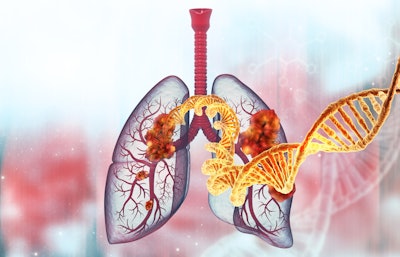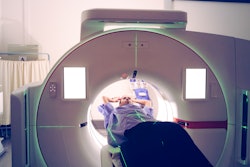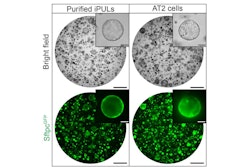
Corticosteroids could be the main factor for failing to treat lung cancer with certain immunotherapies, according to research by Keck Medicine of USC. The medicine is commonly prescribed to alleviate cancer-related symptoms for non-small cell lung cancer (NSCLC) patients treated with immunotherapy.
The study, “Impact of Glucocorticoids on Immune Checkpoint Inhibitor Efficacy and Circulating Biomarkers in Non–Small Cell Lung Cancer Patients,” published in the July issue of Cancer Research Communications. Its findings revealed that when high doses of steroids are administered before and/or during a specific type of immunotherapy, patients’ tumors are less likely to shrink and they do not live as long compared to patients who do not receive steroids.
“Steroids were the biggest predictor of why certain immunotherapies may not be effective, even when considering multiple other factors, such as stage and progression of disease,” said lead author Fumito Ito, MD, PhD, Keck Medicine oncologist and immunologist, in a university news release.
The study analyzed the effect of corticosteroids on a type of immunotherapy called immune checkpoint inhibitors (ICIs). ICIs, which are frequently used to treat NSCLC, help the body’s immune system fight cancer by blocking proteins that prevent T-cells from attacking cancer cells. Researchers believe they’ve identified the mechanism for why steroids and ICIs may not mix.
“Our findings reveal that steroids stop the body’s natural cancer-fighting cells, T-cells, from maturing. This makes them unable to attack the cancer as vigorously as they usually would, leading to worse outcomes for patients,” said Dr. Ito, who is also a member and co-leader of the translational and clinical sciences research program at USC Norris Comprehensive Cancer Center. “While other research has indicated steroids may negatively impact immunotherapy’s efficacy, we are one of the first to pinpoint a probable cause and effect.”
Additionally, Dr. Ito and his colleagues found that steroids block circulating biomarkers in the body — bits of cells in the bloodstream that signal when cancer is progressing so clinicians can adjust a patient’s treatment.
“Without the presence of circulating biomarkers to inform our decisions, oncologists cannot treat the cancer as effectively, and patients may miss out on the best treatment for their cancer,” Dr. Ito said.
The retrospective study examined eight years of data from medical records of 277 patients with stage II-IV NSCLC who were treated with ICIs alone or in combination with other therapies. Researchers compared tumor shrinkage and survival rate outcomes between steroid and non-steroid patients, and they ultimately determined that steroids were the sole factor impeding the effectiveness of immunotherapy treatment.
While the research indicates steroids can interfere with ICIs, Dr. Ito noted steroids may still be necessary for some patients to help manage their cancer-related symptoms. He hopes the study will prompt additional research on the effect of steroids on immunotherapy.
“We know that steroids will continue to play an important role in lung cancer care, but it is important to understand their potential limitations,” Dr. Ito said. “Each patient should talk to their oncologist to make sure they have the best possible care plan tailored to their specific needs.”























